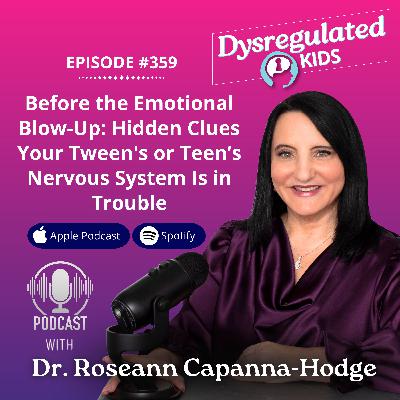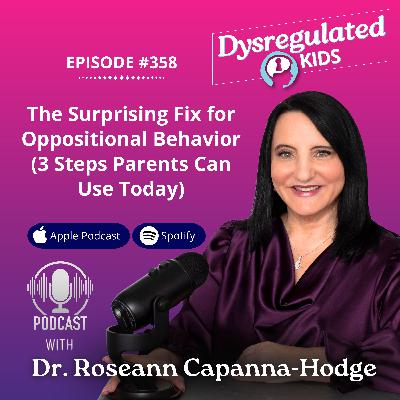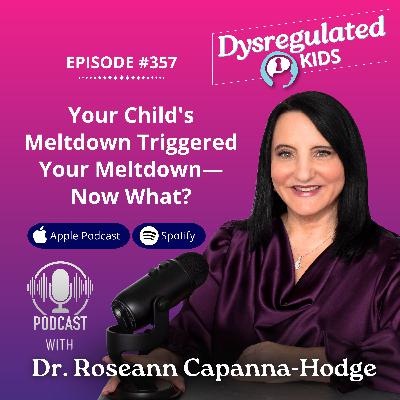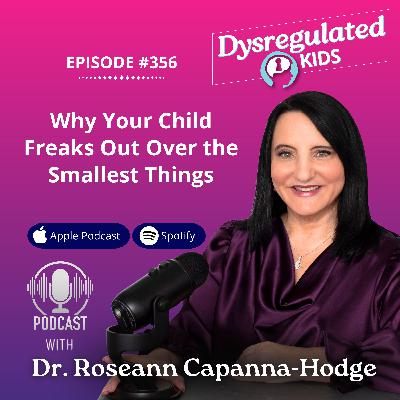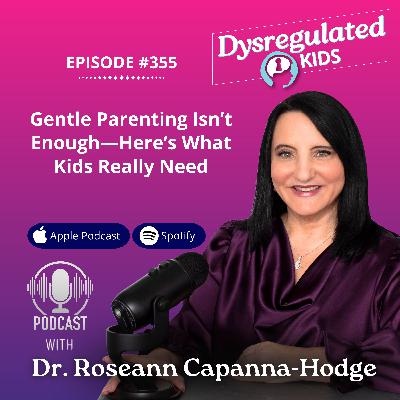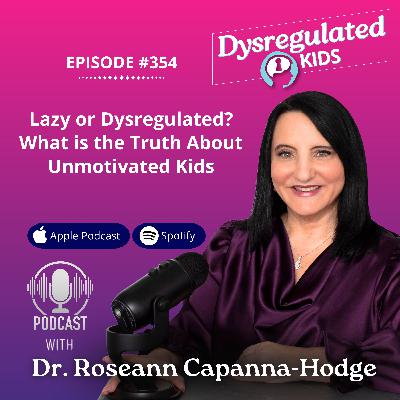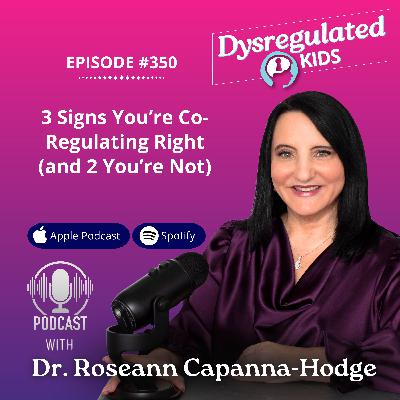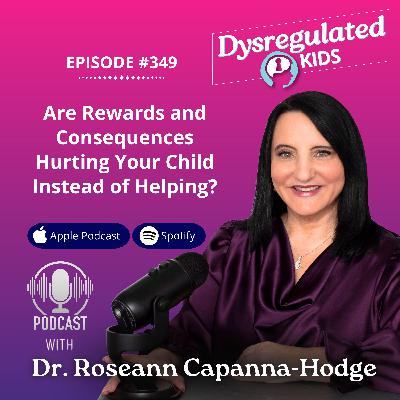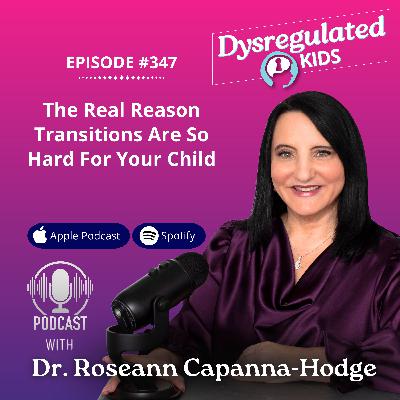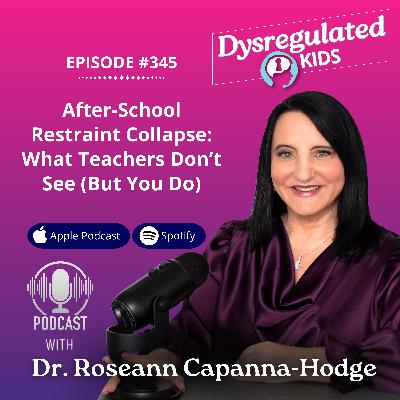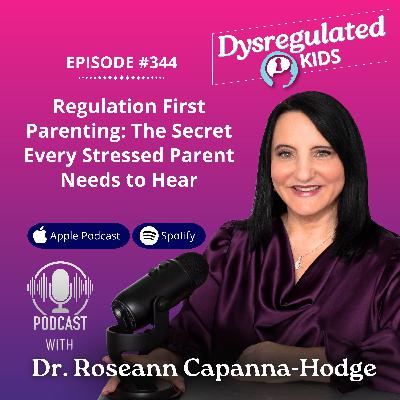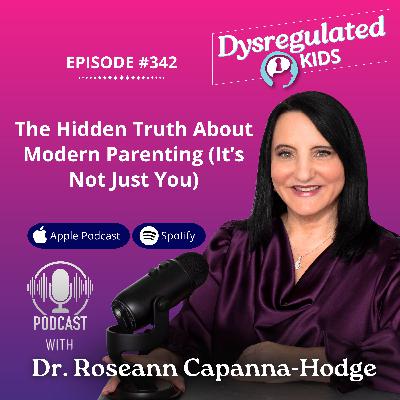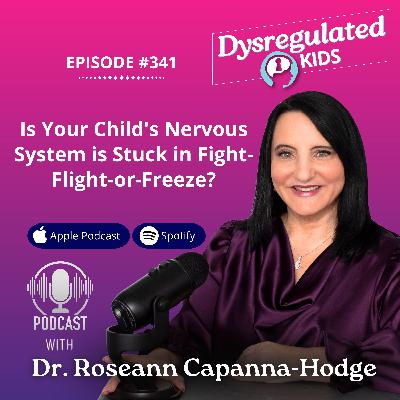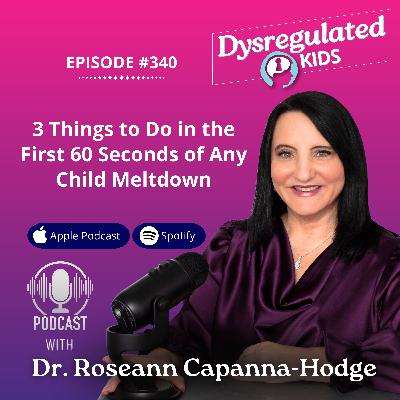359: Before the Emotional Blow-Up: Hidden Clues Your Tween's or Teen’s Nervous System Is in Trouble
Description
Parenting a tween or teen who swings from calm to chaos in seconds can leave you walking on eggshells. One minute they’re fine, and the next—doors slam, voices rise, and you’re wondering what just happened. You’re not alone. Those big mood swings aren’t “attitude.” They’re signals that your child’s nervous system is in distress.
Let’s dive into the hidden clues your tween’s or teen’s nervous system is in trouble, how to decode them before they explode, and practical steps to bring calm back to your home.
Why does my teen overreact to small things?
When your child melts down over a lost pencil or a simple “no,” it’s not defiance—it’s a sign of an overwhelmed nervous system. Their brain is already running on empty, and even a tiny trigger can send them over the edge.
What this means:
- Overreactions = stress overload. Their stress cup is full, and every little thing spills over.
- Persistent irritability or mood whiplash can signal emotional dysregulation, not disrespect.
- Physical signs like chest tightness, rapid heartbeat, or stomach pain often accompany these reactions.
🗣️ “Behavior is communication. Once you learn to read these cues, you stop reacting to the behavior and start guiding your child back to calm.” –Dr. Roseann
Why can’t my tween calm down after getting upset?
If your teen stays upset long after the conflict ends, that’s a clue their body’s stress response hasn’t shut off. Their stress hormones keep them on high alert, making it hard to return to balance.
Try this:
- Regulate first. Take one deep breath before engaging. When you calm your brain, it helps theirs settle too.
- Name the shift. Say, “I can see this feels really big for you.” Validation lowers the nervous system threat.
- Use micro-resets. Short breaks, snacks, or movement stop the spiral.
Remember: the more calm happens, the more calm happens.
Is shutting down or saying “I don’t care” a warning sign?
When teens go silent, refuse to talk, or withdraw, it’s often freeze mode, not attitude. This happens when their nervous system feels unsafe or overwhelmed—a common sign of emotional strain or unresolved trauma.
Look for:
- Sudden withdrawal from friends or activities
- Changes in eating or sleep habits—like skipping meals, difficulty falling asleep, or frequent nightmares
- Physical complaints such as headaches, stomach pain, or fatigue
A trauma-informed approach helps teens feel seen, not shamed. It’s not bad parenting—it’s a dysregulated brain.
If you’re tired of walking on eggshells or feeling like nothing works…
Get the FREE Regulation Rescue Kit and finally learn what to say and do in the heat of the moment.
Become a Dysregulation Insider VIP at www.drroseann.com/newsletter and take the first step to a calmer home.
Why does my child struggle with focus or schoolwork?
Stress doesn’t just affect mood—it hijacks the executive function part of the brain. When your teen’s nervous system is dysregulated, focus, motivation, and even memory take a hit.
What’s really going on:
- Stress hormones block concentration, leading to poor academic performance.
- Many kids are labeled with ADHD when the real issue is nervous system overload, not attention deficit.
- Medication isn’t always the answer. For some kids, it can worsen anxiety or mood issues.
The solution? Regulate the nervous system first—then learning and focus improve naturally.
How can I help my anxious teen express their feelings?
Many teens don’t know how to talk about what’s happening inside. They may say, “I’m fine,” while their body screams otherwise. Helping them name emotions safely is the first step to emotional regulation.
What to say:
- “I can see you’re having a rough moment. I’m here for you.”
- “Do you want space or support right now?”
- “Let’s take a reset together, then figure it out.”
Connection cues—a gentle tone, soft eyes, or a calm touch—signal safety and help bring their nervous system back online.
Decode the Behavior, Regulate the Brain
Your tween or teen’s mood swings, shutdowns, or poor focus aren’t character flaws—they’re hidden clues that their nervous system needs support. Once you recognize these signs and calm your own brain first, you can help your child return to balance.
If your home feels stuck in a cycle of tension and blow-ups, you can start shifting it today. Try my Quick Calm to learn how to reset your child’s stress response in minutes.
When your child is struggling, time matters.
Don’t wait and wonder—use the Solution Matcher to get clear next steps, based on what’s actually going on with your child’s brain and behavior.
Take the quiz at www.drroseann.com/help
FAQs
Why does my teen have sudden mood swings for no reason?
Those “random” mood swings aren’t attitude—they’re nervous system distress signals. When stress hormones build up, your teen’s brain struggles to stay calm. Help them regulate by staying grounded yourself and giving small breaks before reacting.
Is my teen’s shutdown or “I don’t care” phase normal?
Sometimes—but constant shutdowns mean your child’s nervous system is overwhelmed, not defiant. It’s freeze mode. Offer calm presence, not lectures. Say, “I’m here when you’re ready.” That safety helps them come back online.
Why can’t my anxious teen focus or finish tasks?
When the stress response is activated, executive functioning shuts down. Focus issues often look like ADHD but are really dysregulation. Calm the brain first—then support focus with structure, rest, and movement.
How do I calm my teen during an emotional blow-up?
Start by regulating your nervous system. Take one breath, soften your voice, and name what you see: “This feels big for you.” Validation lowers threat and stops the spiral faster than logic ever will.
When should I seek professional help for my teen’s anxiety or mood issues?
If mood swings, sleep problems, or physical complaints persist or interfere with daily life, reach out to a licensed mental health practitioner. A trauma-informed, regulation-based approach can help your teen rebuild balance safely.

